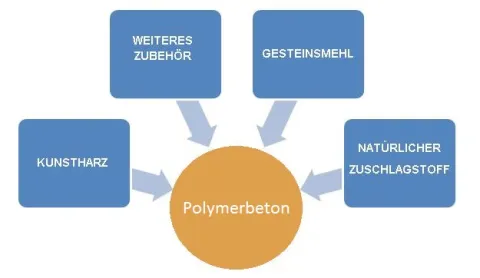Polymer concrete is a modern composite that is highly mechanically and chemically resistant. Due to its composition (aggregates, sands), it is a completely environmentally friendly product; it does not give off any chemicals. After the binding process is completed, polymer concrete achieves the properties of stone, but unlike stone, it has much greater resistance to abrasion, stretching and scratching.
It does not peel, chip, require maintenance, nor erode, which significantly reduces operating costs.
Polymer concrete is an innovative composite building material. It is stronger than normal concrete.
Polymer concrete gives us many more possibilities than traditional construction materials. Thanks to its molecular structure, it can be used even in the most extreme conditions.
- Chemical resistance to water, acids, salts, gasoline, oils etc.
- Meets the requirements of all strength classes.
- Waterproof; it does not absorb water and is perfect for frosty conditions.
- It has a very long service life.
- It does not pollute the environment. It can be recycled.
Crushing strength (compression): 100 N/mm
Flexibility: 30 N/mm
Water absorption (water absorption capacity): less than 0,5%
Expansion coefficient: 0,018 mm/m/°C
Thermal resistance: from -60 °C to +80 °C
Standard polymer concrete is resistant to salt solutions, acids, oils, gasoline, contaminated water, etc.
Polymer concrete is resistant to sudden changes in temperature from -60 to +80.

Thanks to its very strong structure, polymer concrete is a material with much better chemical and mechanical properties than ordinary concrete.
Due to its properties, polymer concrete is much more durable than ordinary concrete. The smooth surface and the absence of micropores effectively reduce the formation of deposits on the surface, thus minimizing the growth of bacteria and fungi (mold).
| Polymerobeton | Beton B30 |
| Compressive strength Rc [MPa] | 80 - 110 | 30 |
| Bending tensile strength Rg [MPa] | 22 - 35 | 2 - 4 |
| Tensile strength when splitting Rr [MPa] | 8 - 12 | 1,5 - 2 |
| Abrasion [cm] | 0,1 - 0,2 | 0,6 |
| Water absorption [mm] | 0 | 4 - 8 |